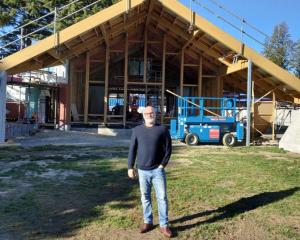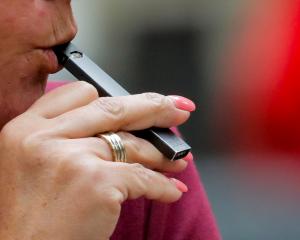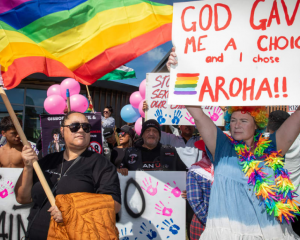Concerns are being raised that all religious symbolism could be abolished from schools following the removal of Bible studies from an Auckland school timetable.
Some parents are worried that New Zealand could follow the lead of France, and enforce a strict secular educational environment.
It comes two weeks after St Heliers School announced it would move its Christian religious education programme (CRE) to outside school hours following complaints to the Human Rights Commission (HRC).
A number of parents at the school are now up in arms over the decision, which they say goes against the majority opinion and was undertaken without proper consultation with the school community.
National MP for Tamaki, Simon O'Connor, said he had been regularly stopped in the streets of his constituency by concerned parents since the decision was made public on February 11.
"My primary concern is, what does this ultimately mean? If you take the negative line, which is to remove programmes from schools on religious grounds, what's the next step, what does that mean for the use of say, karakia or grace in schools, and other spiritual expressions," he said.
"Is the Secular [Education] Network going to ask for that, and ultimately are they advocating for the adoption of the French secular model, which is where you can't have any religious expression, no yarmulkes of the Jewish tradition, no Christian crosses."
Many parents felt the school had "gone against the majority will and without full consultation" to make its decision, he said.
Parent Rachel Trimble agreed, quoting a school survey which showed 68 per cent of parents in favour of the CRE programme.
Around "a couple of hundred" people were unhappy with the decision, she said, adding many were of Christian denominations who wanted their children to have religious instruction, and keep the school tradition of teaching the Bible.
Moving the classes to outside school hours was not a viable option, she said, because many children already had extra-curricular commitments which might clash, and staying late or coming in early would disrupt parents as well as pupils.
St Heliers principal Craig McCarthny was adamant the school was not planning to ban religious or cultural expression from its classrooms.
"Not at all, absolutely not," he said. "The two are not related."
He later said that it was not the CRE classes themselves, or their content, that was an issue, but their timing, reiterating his previous statements that a "crowded" timetable was the main decider in moving the classes outside school hours.
Mr McCarthny assured parents that the school and the board of trustees had been listening to their feedback since the decision, and it would influence how the change was rolled out.
The Secular Education Network, which backed the St Heliers School families who complained to the HRC, said it was not promoting a ban on religion.
"We are only campaigning against these particular kind of religion in schools, where it's a voluntary Christian group coming in and taking classes," spokesman David Hines, who is a practising Christian himself, said.
"We are in favour of secular schools, but that doesn't mean we're anti-religion. It just means [schools] don't give a particular religion a foothold like that."
- By Patrice Dougan of APNZ












